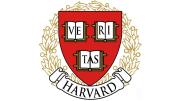HARVARD TODAY RELEASED its 2021 tax filings, covering fiscal year 2022 (July 1, 2021, through June 30, 2022), including information on the earnings of University leaders, and the accompanying Harvard Management Company (HMC) disclosure of senior employees’ compensation for calendar year 2021.
Compensation for the University’s Leaders
The most highly compensated officials are the expected ones among Harvard leaders:
Lawrence S. Bacow, president, $1,048,985, plus other compensation of $281,215 (principally the value of the University-provided official residence, Elmwood, and deferred retirement and other compensation)
Alan M. Garber, provost, $731,497, plus other compensation of $214,662 (again principally reflecting the value of a University-provided residence)
Brian Lee, vice president, alumni affairs and development, $780,664 plus other compensation of $67,214
Katie Lapp, executive vice president, $736,446 plus other compensation of $47,393 (Lapp stepped down from her Harvard position in 2022.)
Various deans (Harvard Medical School’s George Q. Daley, $893,188; Harvard Business School’s Srikant Datar $841,638; Faculty of Arts and Sciences’ Claudine Gay, $646,049) were also among leading earners. Other senior administrators (vice president for finance and chief financial officer Thomas Hollister, vice president and general counsel Diane Lopez, vice president for public affairs and communications Paul Andrew, vice president for campus services Meredith Weenick—who succeeded Lapp as executive vice president—and vice president and University secretary Marc Goodheart) earned base compensation in a range from $430,605 to $617,757. All these officials received additional compensation for medical, retirement, and other benefits.
Two further items of note. Reflecting planned retirements (HBS dean Nitin Nohria) as well as retirements associated with the University’s pandemic-period incentive program (vice president and chief information officer Anne Margulies, vice president for human resources Marilyn Hausammann), there were several large payments that combined final-year salaries plus deferred compensation.
And for a second consecutive year, McKay professor of the practice of computer science and liaison to the chief technology officer David J. Malan appears on the highly compensated list, with total reported compensation of $1,597,747 up from about $1,412,660 last year. He earned base compensation of $389,856, and other reportable compensation of $1,207,891. He is the creator and leader of the phenomenally popular Computer Science 50: “Introduction to Computer Science.” It is among the largest courses at Harvard; has been cloned at Yale; frequently leads enrollments, likely including students paying to earn credentials and certificates for their work, on edX (where enrollment soared during the pandemic); and has other iterations, including for business and M.B.A. learners. His additional reportable compensation presumably derives from some of those other extensive activities—and is an interesting sign of the implications of future extensions of Harvard, and its faculty members, into online-learning ventures.
The Endowment Managers
AT HMC—the University subsidiary which invests endowment and other financial assets—a multiyear restructuring begun late in 2016 was largely completed during 2020 (as explained here), so the data reported today should be largely scrubbed of unusual items associated with that protracted transition in personnel, strategies, and most of the major redeployments of assets. Calendar-year 2021 compensation was reported for the following HMC employees:
N. P. Narvekar, chief executive officer, $6.65 million—up sharply from $1.0 million reported in the prior year, which was reduced by deferral of salary and incentive-based compensation into future years. Adjusting for that deferral, Narvekar’s calendar 2021 compensation was $8.75 million.
Richard Slocum, chief investment officer, earned a reported $5.32 million, but again, that reflects deferrals; his total compensation, adjusted for those deferrals, was $7.00 million.
Sanjeev Daga, chief operating officer, $5.32 million; his total compensation, adjusted for deferrals, was $5.52 million.
Elise McDonald, generalist team, $6,677,587
John Shue, generalist team, $6,447,604
Charlie Saravia, generalist team, $6,124,853
The HMC compensation figures reported today derive from the period including the second half of the phenomenal fiscal year 2021, when returns on endowment assets were 33.6 percent, and the first half of the fiscal year 2022, when returns were negative 1.8 percent.
As reported then, Harvard’s fiscal 2022 returns were in line with those of peer institutions—but investment skill is tested over longer time periods. Narvekar preaches the virtues of evaluating performance over complete market and economic cycles, and of structuring portfolios to avoid large losses (which of course depress long-term returns), so it will be interesting to compare HMC and peer performance next fall. Stay tuned for Harvard’s results, and, allowing for the significant reporting lag associated with the University tax filings and HMC compensation disclosures, the longer-term effect on HMC managers’ performance-based pay in coming years.
Last year’s report on compensation, based on the Form 990 filings for fiscal year 2021, is available here.









